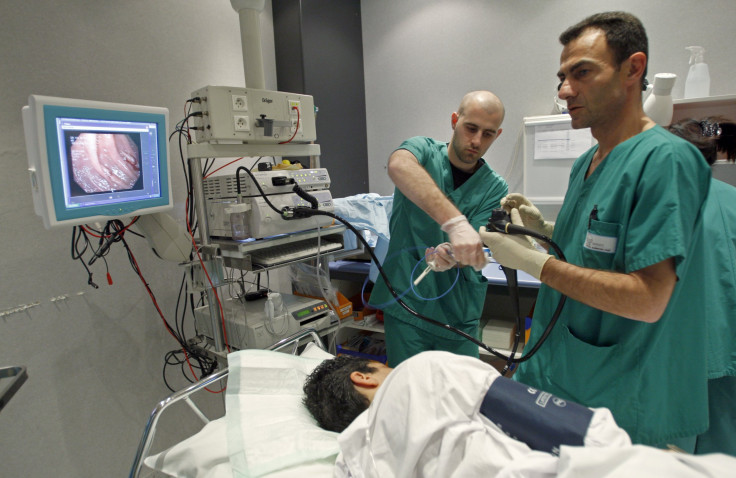Over Half Of People Pass Up On New Colorectal Cancer Screening Test; Why That Needs To Change

Tests that screen for early signs of a disease are an important step in preventing poor health... and even death. A new report from Cancer Research UK suggests many people may not take this step seriously. More than half of those invited to take a new colorectal cancer screening test decided against doing so, even after being informed the test could stop them from developing the disease, the researchers say.
Could it be that many people simply don’t like the colorectal screening test?
A Most Unlovable Test
Colorectal cancer, often called bowel cancer, develops in either the colon or rectum, which are parts of the large intestine and included in your digestive system. Colorectal cancer is a very common cause of cancer death worldwide. In the United States it is the fourth leading cause of cancer death, and in the United Kingdom, it is second, according to the authors of the study. Most cases develop in people over the age of 50, and for that reason, people commonly begin screening around that age.
So what does the screening test look like? It begins with “bowel prep” — eating a special diet for days in advance and then using laxatives to clean out the colon and rectum. Whether you get a colonoscopy or a flexible sigmoidoscopy (a limited form of the same test), this will involve a specially trained nurse or doctor inserting a flexible tube (with a tiny camera on the end) inside your anus in order to peer inside the rectum and large bowel. If polyps are seen, these precancerous growths can be scraped out and destroyed during the test. Unlike other screening tests, then, a colonoscopy not only checks for cancer but also may prevent it.
In fact, studies indicate bowel cancer cases may be reduced by up to 33 percent while deaths are reduced by up to 43 percent among those willing to undergo a flexible sigmoidoscopy (also known as a bowel scope screening test). The NHS Bowel Scope Screening Program, which offers a one-time test to 55-year-olds, is due to be fully rolled-out in the UK by 2018. In the meantime, the program is being piloted in six areas of England.
For the study, researchers looked at statistics from the more than 21,000 people in the six pilot regions to see exactly how many took the test after being sent an appointment.
Cancer Research UK scientists discovered just over 43 percent of people took the test. The big surprise? Slightly more men (45 percent) than women (42 percent) went for their appointment.
The researchers also found the likelihood of someone taking the test had some relationship to their level of wealth. While people from the most deprived neighborhoods were more likely to avoid the test (67 percent), nearly half of the people living in the wealthiest neighborhoods also neglected the tests.
While the researchers believe these early indications are “encouraging,” they wrote that “future efforts should focus on increasing public awareness of the program and reducing socioeconomic inequalities.” Each year, screening tests save many lives, the researchers noted. The test may not be pleasant, but it's necessary.
Source: McGregor LM, Bonello B, Kerrison RS, et al. Uptake of Bowel Scope (Flexible Sigmoidoscopy) Screening in the English National Programme: an analysis of the first fourteen months. Journal of Medical Screening. 2015.
Published by Medicaldaily.com



























